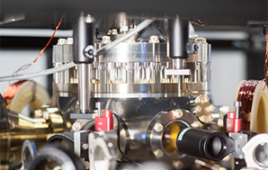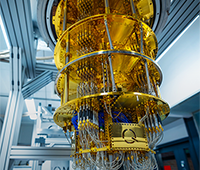 Artificial intelligence must be kept under human control or we may become defenseless against its capabilities, warn two University of Sydney machine-learning experts.
Artificial intelligence must be kept under human control or we may become defenseless against its capabilities, warn two University of Sydney machine-learning experts.
Professor Dong Xu, Chair in Computer Engineering from the University of Sydney’s School of Electrical Engineering and Information Engineering says the defeat of the world champion Go player has raised fresh concerns about the future role of artificial intelligence (AI) devices.
The Professor, whose research interests include computer vision, machine-learning and multimedia content analysis, says the question now is how much we should control AI’s ability to self-learn.
“The scientists and technology investors have been enthusiastic about AI for several years, but the triumph of the supercomputer has finally made the public conscious of its capabilities. This marks a significant breakthrough in the technology world,” Professor Xu says.
“Supercomputers are more powerful than the human mind. Competitive games such as Go or chess are actually all about rules — they are easy for a computer. Once a computer grasps them, it will become very good at playing the games.”
Professor Xu says: “The problem is that computers like AlphaGo aren’t good at the overall strategy, but they are good at partial ones because they search better within a smaller area. This explains why AI will often lag behind in the beginning but catches up later.
“A human player can be affected by emotions, such as pressure or happiness, but a computer will not.
“It’s said that a person is able to memorize 1000 games in a year, but a computer can memorize tens of thousands or hundreds of thousands during the same period. And a supercomputer can always improve — if it loses one game, then it would analyze it and do better next time.
“If a supercomputer could totally imitate the human brain, and have human emotions, such as being angry or sad, it will be even more dangerous.”
Currently, AI is good for the labor-intensive industries and can work as human substitutes to serve the public interest. They can clean, work as agricultural robots in the fields, or probe deep underground.
“Another challenge is that AI needs a more intelligent environment. For instance, self-driven automobiles often can’t recognize a red light, so if the traffic lights could send a signal to the cars and they could sense them, it would solve the problem. Singapore is making an effort to build an area with roads that are friendly or responsive to self-driven vehicles.”
Professor Xu believes it is crucial for companies, such as Google and Facebook, to set up “moral and ethics committees” to take control to ensure scientific research won’t head in the wrong direction and create machines that act maliciously.
Dr. Michael Harre, a senior lecturer in complex systems who spent several years studying the AI behind the ancient Chinese board game, says: “Go is probably the most complicated game that is commonly played today. Even when compared to chess, which has a very large number of possible patterns, Go has more possible patterns than there are atoms in the universe.
“The technology has developed to a point that it can now outsmart a human in both simple and complex tasks. This is a concern, because artificial intelligence technology may reach a point in a few years where it is feasible that it could be adapted to areas of defense where a human may no longer be needed in the control loop: truly autonomous AI.”



